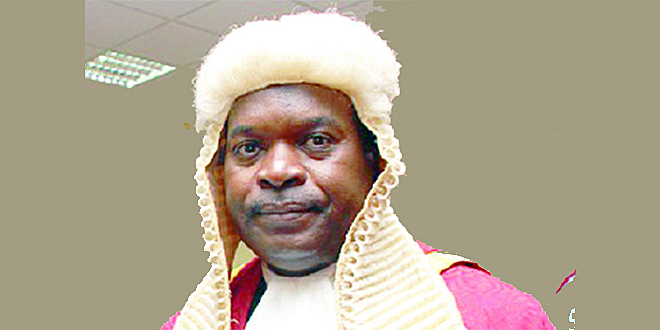President, Public Interest Lawyers League, Abdul Mahmoud, has said the Chief Judge of the Federal Capital Territory (FCT), Justice Ishaq Bello, over-reached himself ordering magistrates in the FCT to stop granting remand orders to the EFCC.
“In the face of the Administration of Criminal Justice Act (ACJA 2014), the CJ overreached himself by asking magistrates not to entertain cases in which they have no jurisdiction,” Mahmoud told the National Daily Thursday.
Justice Bello during his visit to the Keffi Medium Prison in Nasarawa on Wednesday had told the magistrates to stop arraigning people for offences such as armed robbery, murder and other capital offences for which the magistrate courts are not competent to handle.
Mahmoud, however, said, “It is not in the powers of the CJ to seek to abridge the ACJA when nobody has challenged those sections 236 and 293 that appear to be in conflict with the section 35 of the 1999 Constitution.
According to him, the ACJA empowers the magistrates to make order of remand which lasts no more than 28 days.
The ACJA is the code formed from the unification of the Criminal Procedure Act (CPA)for the south and the Criminal Procedure Code (CPC) for the north.
My Lord Bello was reacting to the role of the magistrate court judges who have been granting the EFCC, State Security Service, and other enforcement agencies of government the remand order to keep suspects in detention for long.
PDP’s National Publicity Secretary Olisa Metuh was arrested last week—and has been detained for 10 days—by the EFCC over his alleged complicity in the $2.1 billion arms purchase scandal which has at its centre the Office of the National Security Adviser headed by the retired Col. Sambo Dasuki.
Two days ago, the commission’s acting chairman, Ibrahim Magu, said the anti-graft agency got a court order that enables it detain Metuh for as long as 15 days before charging him to court.
In an interlocutory application filed Thursday at an Abuja Federal High Court, Metuh’s lawyer Ifedayo Adetibe, however, said the EFCC has no constitutional power to arrest and detain anyone without charging the person to court.
But the EFCC counsel, Rotimi Jacobs, told newsmen his client had already filed a charge before the court against Metuh, adding the suspect’s arrest and detention followed a court order.

 Health & Fitness2 days ago
Health & Fitness2 days ago
 Comments and Issues1 week ago
Comments and Issues1 week ago
 Featured6 days ago
Featured6 days ago
 Education1 week ago
Education1 week ago
 Business1 week ago
Business1 week ago
 Aviation4 days ago
Aviation4 days ago
 Business6 days ago
Business6 days ago
 Crime1 week ago
Crime1 week ago











